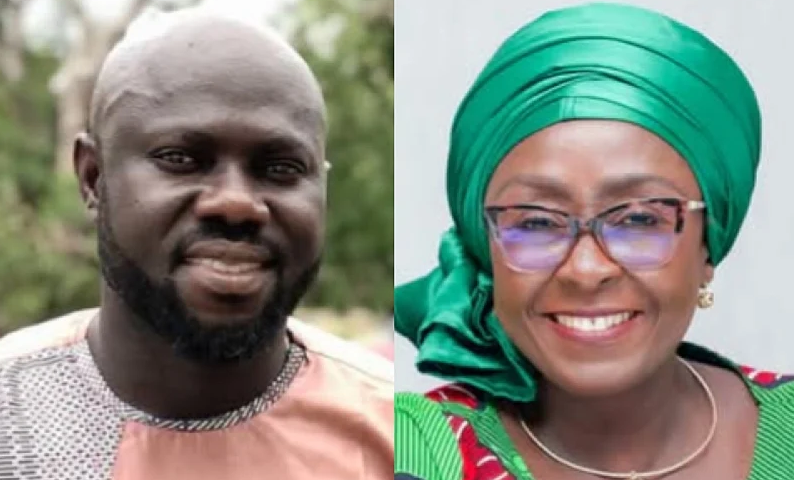Stephen Mensah, a concerned Ghanaian parent and media personality, has penned an open letter to the Minister of Tourism, Arts, and Culture, Dzifa Gomashie, expressing deep concern over the pervasive influence of foreign animated content on Ghanaian children. He argues that the constant exposure to non-Ghanaian narratives, values, and cultural representations poses a significant threat to the development of a strong Ghanaian identity among young children. Mensah’s letter serves as a passionate plea for government intervention to address this growing cultural gap by investing in the creation and dissemination of high-quality Ghanaian animated content specifically designed for children aged 0-7. He believes this crucial intervention will not only entertain and educate but also foster cultural pride and preserve the rich tapestry of Ghanaian heritage.
Mensah’s core proposal revolves around the establishment of a national initiative focused on producing engaging and educational animated programs that reflect the unique cultural landscape of Ghana. He envisions content that portrays Ghanaian values, languages, and familiar surroundings, creating a relatable and immersive experience for young viewers. To ensure widespread accessibility, Mensah advocates for the distribution of this content across various platforms, including popular digital platforms like YouTube and YouTube Kids, national and regional television channels, and educational portals. This multi-pronged approach aims to maximize the reach and impact of the initiative, ensuring that children across Ghana have access to culturally relevant content.
The letter emphasizes the collaborative nature of this envisioned project. Mensah stresses the necessity of involving a diverse team of professionals, encompassing expertise in education, psychology, animation, music, and culture. This interdisciplinary approach is crucial for creating content that is not only entertaining but also developmentally appropriate and culturally sensitive. He further suggests integrating the finalized content into the formal education system, offering versions in both English and local Ghanaian languages to cater to the linguistic diversity of the nation. This integration aims to solidify the initiative’s impact, making it a core component of early childhood education.
Mensah eloquently articulates the multifaceted benefits of investing in Ghanaian children’s media. He highlights its potential to support early childhood education by presenting educational concepts in an engaging and accessible format. Furthermore, he emphasizes the role of local language content in promoting language retention and development, ensuring that children grow up fluent in their mother tongues. Beyond the cognitive benefits, Mensah argues that culturally relevant content nurtures emotional and mental development by providing children with characters and narratives they can identify with, fostering self-esteem and a sense of belonging. Crucially, he underscores the importance of such content in instilling a strong sense of cultural identity and moral values rooted in Ghanaian traditions.
The letter transcends a mere call for educational reform; it frames the investment in children’s media as a fundamental cultural responsibility. Mensah argues that protecting and promoting Ghanaian culture is not merely an option but a necessity for ensuring the nation’s cultural continuity and vitality. He paints a compelling picture of the potential positive impact of such an initiative, emphasizing the role it can play in shaping national identity and fostering a sense of pride in Ghanaian heritage among the younger generation. By investing in children’s media, Ghana invests in its future, ensuring that its cultural legacy is passed down to future generations.
Mensah concludes his letter with a powerful call to action, urging the government to demonstrate decisive leadership in this crucial area. He points to successful examples from other countries, including the USA, UK, and Nigeria, where significant investment in children’s media has demonstrably contributed to shaping national identity and youth development. He implores the Ghanaian government to learn from these examples and take bold steps to prioritize the creation and dissemination of Ghanaian animated content. This, he believes, is not simply an investment in entertainment but a strategic investment in the cultural and intellectual future of Ghana’s children. The letter resonates with a sense of urgency, emphasizing the need for immediate action to address the cultural gap and ensure that Ghanaian children are nurtured with stories and values that reflect their own rich cultural heritage.














